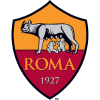Gabriel Batistuta
Thumb

Image Source: Unknown report
User Rating
Data Complete 70%
Born
1969 (56 years old)
Position
Forward
Status
Ethnicity
Team Number
Height
185 cm
Outfitter
Kit
Wage Year
Player Cutout

Full Body Render

Sport
Team
_Retired Soccer
2nd Team
League
_No League Soccer
Creative Commons Artwork
No
Gabriel Omar Batistuta (Spanish pronunciation: ; born 1 February 1969) is an Argentine former professional footballer. During his playing career, Batistuta was nicknamed Batigol () as well as El Ángel Gabriel (; Spanish for Angel Gabriel). Regarded as one of the greatest strikers of all time, noted in particular for powerful strikes from volleys or from distance while on the run, in 1999, Batistuta placed third for the FIFA World Player of the Year award. In 2004, he was named by Pelé in the FIFA 100 list of the world's greatest living players.
After beginning his career in Argentina in 1988 with Newell's Old Boys, followed by River Plate and Boca Juniors where he won titles, the prolific striker played most of his club football with Serie A club Fiorentina in Italy; he is their all-time top scorer in Serie A with 151 goals. When Fiorentina was relegated to Serie B in 1993, Batistuta stayed with the club and helped them return to the top-flight league a year later. He became an icon in Florence; the Fiorentina fans erected a life-size bronze statue of him in 1996, in recognition of his performances for the club. Despite winning the Coppa Italia and the Supercoppa Italiana with the club in 1996, he never won the Serie A title with Fiorentina, but when he moved to Roma in 2000 for €36 million – the highest fee ever paid for a player over the age of 30 until Cristiano Ronaldo moved from Real Madrid to Juventus in 2018– he won the 2000–01 Serie A title. After a brief loan spell with Inter Milan in 2003, he played his last two seasons in Qatar with Al-Arabi before he retired in 2005.
At international level, Batistuta was Argentina's all-time leading goalscorer with 54 goals in 77 official matches, a record he held until 21 June 2016, when he was surpassed by Lionel Messi. He participated in three FIFA World Cups, scoring 10 goals, making him Argentina's all-time top scorer in the competition, and the joint eighth-highest World Cup goalscorer of all time. Batistuta is the only player in football history to score two hat-tricks in different World Cups. With the Argentina national team he won two consecutive Copa América titles (1991 and 1993), the 1993 CONMEBOL–UEFA Cup of Champions, and the 1992 FIFA Confederations Cup.
Batistuta was born on 1 February 1969 to slaughterhouse worker Omar Batistuta and school secretary Gloria Zilli, in the town of Avellaneda, province of Santa Fe, Argentina, but grew up in the nearby city of Reconquista. He has three younger sisters, Elisa, Alejandra, and Gabriela. Batistuta is a Roman Catholic. At the age of 16, he met Irina Fernández, his future wife, at her quinceañera, a rite of passage on her 15th birthday. On 28 December 1990, they were married at Saint Roque Church.
Batistuta was given the freedom of Florence (home of Fiorentina where he played for nine years) in 2016.
The couple moved to Florence, Italy, in 1991, and a year later their first son, Thiago, was born. Thanks to good performances in the Italian championship and with the Argentina national team, Batistuta gained fame and respect. He filmed several commercials and was invited onto numerous TV shows, but in spite of this, Batistuta always remained a low-profile family man. In 1997, Batistuta's second son, Lucas, was born, and a third son, Joaquín, followed in 1999. He now has a fourth son Shamel. In 2000, Batistuta and his family moved to Rome, where he played for Roma. Two years after Shamel was born, Batistuta was loaned to Inter. In 2003, after 12 years in Italy, the family moved to Qatar where Batistuta had accepted a lucrative celebrity playing contract with a local team, Al-Arabi, ending his career there in 2005. He moved back to Argentina in 2007.
Despite having completed his coaching badges in Argentina, he currently has no involvement with football, instead (primarily as he has difficulty walking) he prefers to play polo and golf, he was quoted saying 'I don't like football, it's only my job'. In later interviews with FIFA he expanded, “I lived and breathed football”, adding, “when I was playing football I never enjoyed it that much, I was never happy ... if I scored two goals, I wanted a third, I always wanted more. Now it's all over I can look back with satisfaction, but I never felt that way when I was playing.” In 2006 he expressed an interest in coaching Australia's national team and Argentina's team. During the 2006 FIFA World Cup he worked as a commentator for Televisa Deportes. Batistuta currently runs his own construction company in Argentina. He also worked as technical secretary in the professional football club Colón, joining the club's staff in January 2012, and leaving at the end of the 2012–13 season.
Speaking in a television interview in Argentina in 2014, Batistuta said the pain suffered in his ankles after retiring in 2005 became so intense that he "urinated in bed with the toilet only a few steps away. I couldn't move." He visited a doctor he knew asking his legs be amputated, but the doctor turned down his request. Although he later underwent surgery to relieve the pressure on his cartilage and tendons, and his condition improved slightly, in a 2017 interview he stated that he still had difficulty walking and faced mobility issues as a result of the stresses and injuries he faced throughout his football career due to overexerting himself. He has however still been able to take part in charity football games, and in 2014 he scored twice – one a trademark finish with a powerful 35 yard strike into the roof of the net – in a game in Italy.
Batistuta currently lives in Perth, Western Australia.
In 1991, Batistuta was selected to play for Argentina in the Copa América held in Chile, where he finished the tournament as top scorer with six goals as Argentina romped to victory. The following year, he won the FIFA Confederations Cup with Argentina, finishing as the tournament's top-scorer. In 1993, Batistuta played in his second Copa América, this time held in Ecuador, which Argentina won with Batistuta scoring both goals in a 2–1 win over Mexico in the final.
The 1994 World Cup, held in the United States, was a disappointment. After a promising start Argentina were beaten by Romania in the last 16. The morale of the team was seriously affected by Diego Maradona's doping suspension. Despite the disappointing Argentine exit, Batistuta scored four goals in as many games, including a hat-trick in their opening game against Greece.
During the qualification matches for the 1998 World Cup (with former River Plate manager Daniel Passarella) Batistuta was left out of the majority of the games after falling out with the coach over team rules. The two eventually put the dispute aside and Batistuta was recalled for the tournament. In the game against Jamaica, he recorded the second hat-trick of his World Cup career, becoming the fourth player to achieve this (the others were Sándor Kocsis, Just Fontaine, and Gerd Müller) and the first to score a hat-trick in two World Cups. Argentina were knocked out of the World Cup by the Netherlands courtesy of a last minute Dennis Bergkamp winner after the two sides had held out for a 1–1 draw for almost the entire match.
After a good series of performances by Argentina in the qualification matches for the 2002 World Cup, hopes were high that the South Americans – now managed by Marcelo Bielsa – could win the trophy, and Batistuta announced that he planned to quit the national team at the end of the tournament, which Argentina aimed to win. But Argentina's "group of death" saw the team fall at the first hurdle, only managing a victory against Nigeria (Batistuta scored the match's only goal). They later fell to England 1–0 and managed a mere 1–1 tie against Sweden. This meant that the team was knocked out in the opening round for the first time since 1962. With 54 goals from 77 games, Batistuta was the record goalscorer for Argentina, a record he held until it was surpassed by Lionel Messi in 2016. Batistuta admitted he was a little annoyed at losing the record, stating, “You go around the world and people say, 'he's the top scorer for the Argentina national team’, before he then added, “But the advantage I have is that I'm second to an extraterrestrial."![]()
![]()
Trophies ![]()
 Italian Supercoppa… |  Italian Serie A |  Italian Supercoppa… |  Italian Coppa Italia |
Milestones
 FIFA World Cup Hat-Trick 1998-06-21 |  FIFA World Cup Hat-Trick 1994-06-21 |
Former Youth Teams

1987-1988 |
Former Senior Teams

1988-1989 |

1989-1990 |

1990-1991 |

1991-2000 |

1991-2002 |

2000-2003 |

2003 (Loan) |

2003-2005 |
Former Club Staff
Contracts
Fanart




Player Poster

Banner

News Reports
None found...
Collections
None found...
Statistics

| Goals | Italian Serie A | 2000-2001 | 20 |

| Appearances | Italian Serie A | 2000-2001 | 28 |

| Goals | UEFA Cup | 2000-2001 | 1 |

| Appearances | UEFA Cup | 2000-2001 | 4 |
Other Links
WikiData |